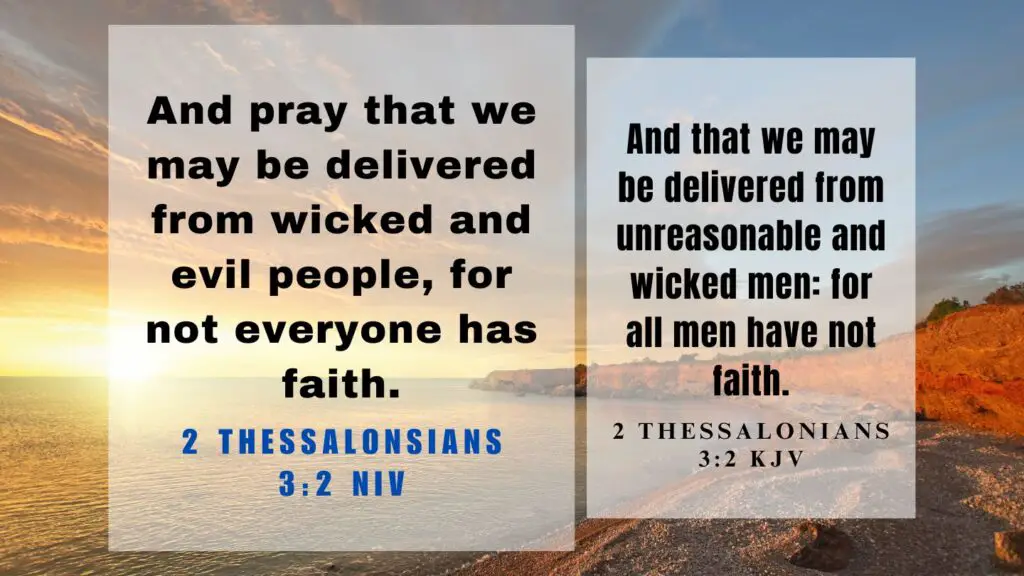
And that we may be delivered from unreasonable and wicked men: for all men have not faith. — 2 Thessalonians 3:2 KJV
And pray that we may be delivered from wicked and evil people, for not everyone has faith. — 2 Thessalonians 3:2 NIV
Reflection on Verse for Today
At its core, this powerful verse speaks to the realities that believers face in a fallen world. It’s a straightforward acknowledgment that not everyone around us operates with the same moral compass or the same faith commitment. The Apostle Paul, who is generally accepted to be the author of this epistle, is asking for prayer to be delivered from “wicked and evil people.”
In his ministry, Paul frequently encountered opposition, persecution, and outright danger. His request for prayer is not just an echo from the early days of Christianity but a timeless reminder that living a faithful life is not without challenges. It is a call for solidarity in prayer among believers, that they might find refuge and strength in the face of difficulties.
This verse underscores several key points for reflection:
The Need for Prayer: Paul, an apostle who had a direct encounter with Jesus Christ, acknowledges the need for prayer. He doesn’t rely solely on his capabilities or understanding but leans on the community for spiritual support. If someone as spiritually endowed as Paul needed prayer, how much more do we need it in our daily struggles?
Acknowledgment of Evil: The verse openly acknowledges that evil exists, reinforcing that naïveté or ignorance is not a spiritual gift. Christians are called to be “as shrewd as snakes and as innocent as doves” (Matthew 10:16).
Community over Isolation: Paul’s request is not just for his benefit but for the deliverance and protection of all those who are part of the faith community. It’s a communal plea, emphasizing that in Christianity, the body of Christ is interconnected. One person’s deliverance and safety are, in a sense, everyone’s concern.
Distinguishing Faith: The verse ends with the phrase, “for not everyone has faith.” In a world where moral relativism increasingly blurs the lines of good and evil, faith in God offers a different perspective, a higher moral standard, and hope for deliverance from wickedness. It makes clear that the struggle is not just against flesh and blood but also against spiritual forces (Ephesians 6:12).
Dependence on God: Ultimately, the verse directs us to place our hope and trust in God for deliverance. It’s not a call to take matters into our hands but a plea to place them into God’s.
In a modern context, this verse can be a source of comfort for those facing hardship due to their beliefs, reminding them to lean on their faith community and, most importantly, on God. It can also be a catalyst for us to examine our lives, re-evaluate our priorities, and deepen our prayer lives.
Therefore, as we contemplate this bible verse, let us remember today the power of communal prayer, acknowledge the reality of evil, cherish the unique perspective that faith offers, and continually place our dependence on God for deliverance and guidance.
